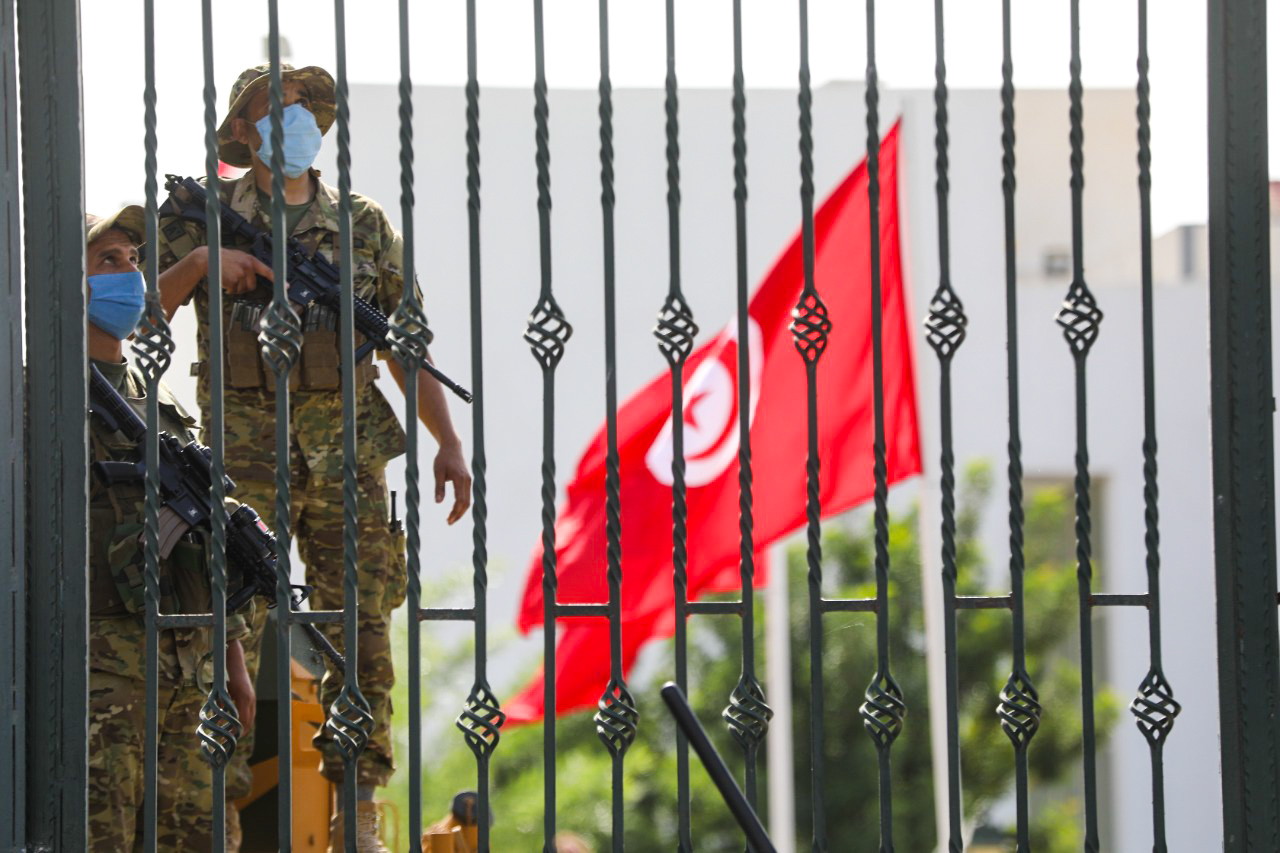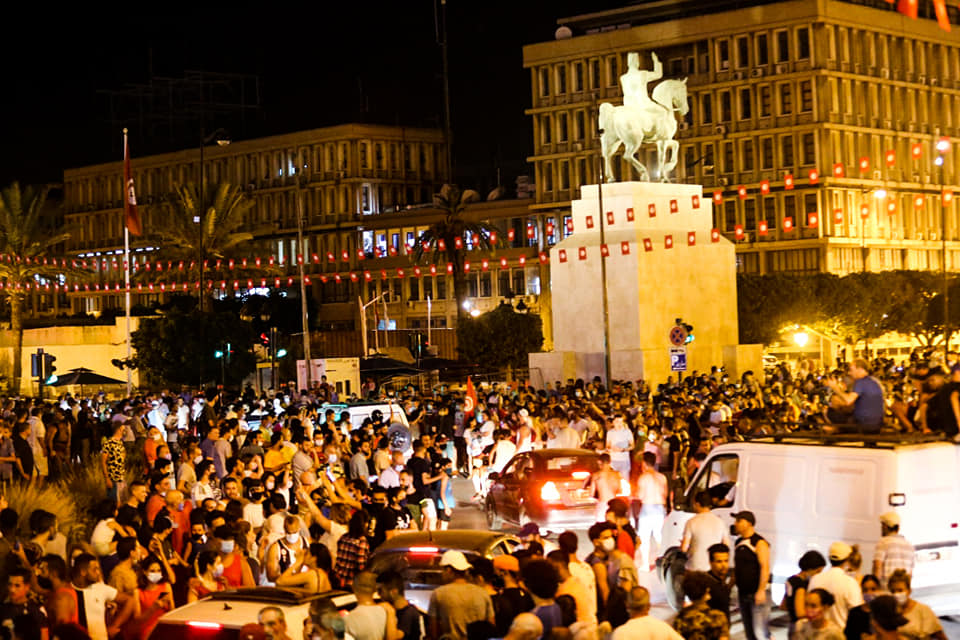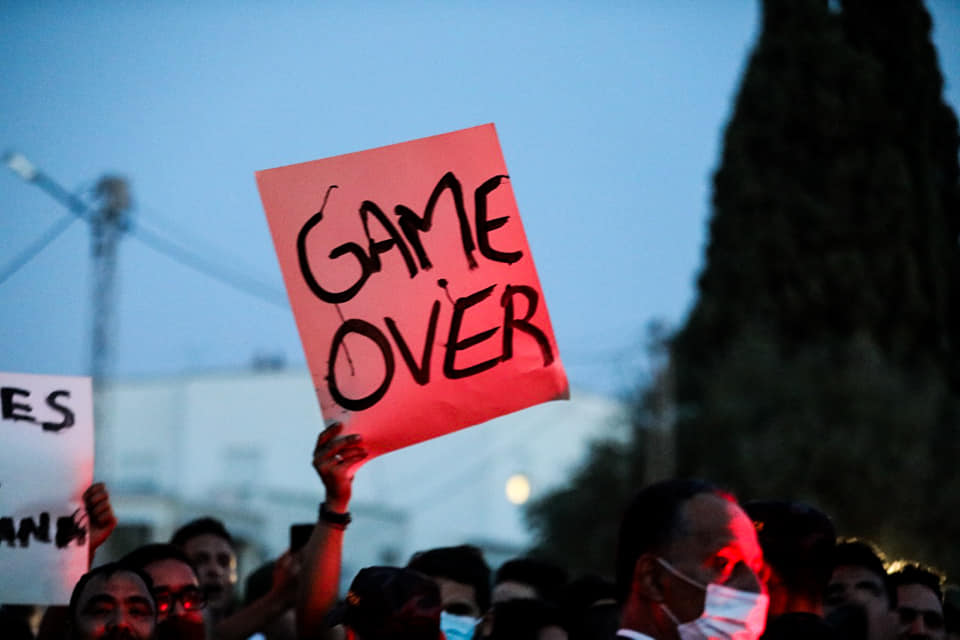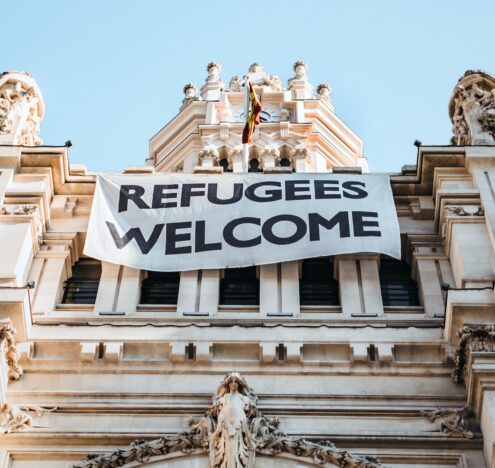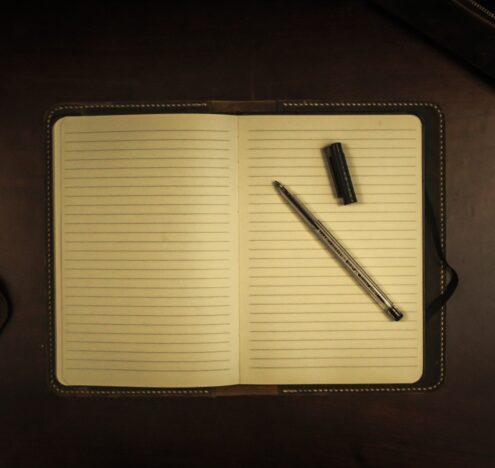It was the Republic Day in Tunisia, just a usual boring Sunday. A Tunisian swimmer won the gold medal in the Olympic games, and we all felt joyful and proud of his achievement. I was like most Tunisians, scrolling over Instagram, switching to Twitter a bit, and watching the Tokyo games when I received this notification at the end of the day: “Kais Saied freezes all parliamentary activities, lifts immunity of all MPs and dismisses PM.” It was a whole pack of exceptional measures, with a focus on the fight against corruption and defending Tunisians’ dignity.
I couldn’t believe it.
MIXED EMOTIONS
I shared the article on Twitter and asked if this is not fake news. People replied with the live speech of the president. Yes, this is not a joke! He did it! Without thinking, I shared a Tweet describing my fear of the future, asking people to not get excited because President Kais Saied has the potential to be a dictator. “Dictator” is a big word, but I couldn’t hold myself back as I am a fierce critic of the presidency — and of all politicians in general.
My mind was confused with this sudden news. While we were used to the president’s populist speeches and his threatening to act and use the constitution to fix the political landscape, no one saw this coming. I found myself reading Article 80 of Tunisia’s constitution while trying to analyze reactions from my fellow activists on Twitter. Then, we started hearing people celebrating and chanting in the streets and loud parades of cars. Fireworks in the sky and celebrations everywhere. We’re supposed to have a curfew at 8 pm due to the coronavirus, but the euphoria of getting rid of an incompetent parliament and a failing government took over any sense of illegal act.
But I was in denial. I couldn’t feel happy or get out of the house, because I was not sure if what happened was the right thing.
That night was long. Tunisians who took the streets to demonstrate in the morning, went back by night to sing and raise flags. Even the president decided to take a tour in the main avenue of the capital, showing that he has the popular legitimacy to take those exceptional measures.
Meanwhile, many politicians, Members of Parliament, and researchers started raising concerns about democracy being under threat and qualified the president’s move as a “constitutional coup.” International media was clearly divided. Some, like the Qatari, Turkish, US, and UK-based media took the Ennahda party, Tunisia’s largest political party, and its sympathizers’ side, which basically stated that the president’s move was a blatant power grab that has weakened Tunisia’s democratic legitimacy and indicates a return to dictatorship. Ennahda came to power just after the revolution — known as “The Freedom and Dignity Revolution” by Tunisians and the Jasmine Revolution in the West — and claimed “electoral legitimacy” after winning elections in 2011. Yet, their funding has not been transparent, resulting in an investigation into their finances that is ongoing. Last month, it was revealed that the Ennahda had signed contracts with US lobbying firms to support them through international media, though it is illegal to use foreign funding in Tunisia. However, others like the Egyptians, Saudi, and Emirati media outlets supported the president, in a clear move to go against the Ikhwan or Muslim Brotherhood, who has close ties with the Ennahda.
THE PLAGUE OF MISINFORMATION
Misinformation was the norm at some point. People were sharing news about massive arrests for politicians or businessmen, and even believed that ex-Chief of government Hichem Mechichi was beaten in the presidential palace by Egyptian intelligence agents. Yet, at his first public appearance since the alleged attack, at the country’s anti-corruption authority to declare his assets, he bore no signs of physical assault, leading many to believe that stories of his attack were a conspiracy theory — and misinformation. Meanwhile, Tunisian activists like myself and journalists were jumping from one article to another — and one thread to another — answering all the “MENA experts” and telling them the truth about what’s really happening in Tunisia. We were shocked to find that one of these experts had the evil thought to suggest that donors withhold vaccines to Tunisia as leverage to the “coup.” We also tried to fix this misconception of comparing Tunisia to Egypt. After all, President Saied built a strong relationship with President Abdul Fattah Al-Sisi of Egypt, but it doesn’t necessarily mean that Tunisia is headed toward a path of military rule or dictatorship.
At this point, I had to stop and think about my position: Am I considering this a coup or not? Why does it feel so hard to pick a side?
We are staying vigilant. We will continue resisting and be resilient because in hard times, Tunisians showed to the world how we can fix things in our own way.
This, alas, is the “activist dilemma.” After the revolution in 2011, I decided to change paths. I completed my engineering studies but turned to focus on my true passion: Strengthening civil society. I am especially passionate about observing elections and all democratic mechanisms, including themes related to politics, transparency, anti-corruption, and youth participation. I couldn’t escape the fear of losing what we achieved during the democratic transition in 2011. The rights and freedoms we defended and that are enshrined in our constitution are all what we gained from the revolution. I’m not ready to see any of that threatened. But, at the same time, 10 years have passed and I’m still not seeing the Tunisia of my dreams.
Tunisians didn’t see any concrete progress regarding the high rate of unemployment, the rise of corruption and impunity, the reforms related to education, justice, and security nor the behavior of the political elite. The latter were qualified as the traitors, because all they saw was their personal interests. The parliament became a space for violence, misogyny, and abuse of power. With the coronavirus pandemic crisis, it got worse. Tunisians struggled with lack of medical equipment and access to health services. The government also mishandled the acquisition, and then distribution, of the vaccines. For example, the government was late at negotiating vaccine purchases and instead waited on the COVAX initiative. The government also didn’t negotiate with vaccine manufacturers directly, instead relying on third parties, which slowed the already-slow process of vaccine acquisition more. Until last month, the vaccination process was very slow due to the lack of vaccines: Out of a population of 12 million, only 1.3 million are fully vaccinated.
So, I can’t deny that the dismissal of the government and the freezing of that parliament wasn’t satisfying and comforting. We’ve had enough of incompetence and lack of respect for the Tunisian people.
MAINTAINING HOPE FOR THE FUTURE
My personal revision led me to feel guilty. I needed to remind myself that no matter what happens, Tunisians’ demands will always stay legitimate. If they went to the streets either protesting or chanting for the change then I have to find my way to cope with it and defend what’s right for them.
What’s the future? Until this moment, we have no clear vision or roadmap. The international community has already asked for protection of human rights and freedoms, and some called for the restitution of the parliament as a democratic institution.
Every day, we wait for any new order or decision. Our president is full of “surprises.”
Do we want things to get back to what it has been? I’m sure most Tunisians consider the past situation a nightmare.
We are staying vigilant. We will continue resisting and be resilient because in hard times, Tunisians showed the world how we can fix things in our own way.
Henda Fellah is a civil society activist from Tunisia.














